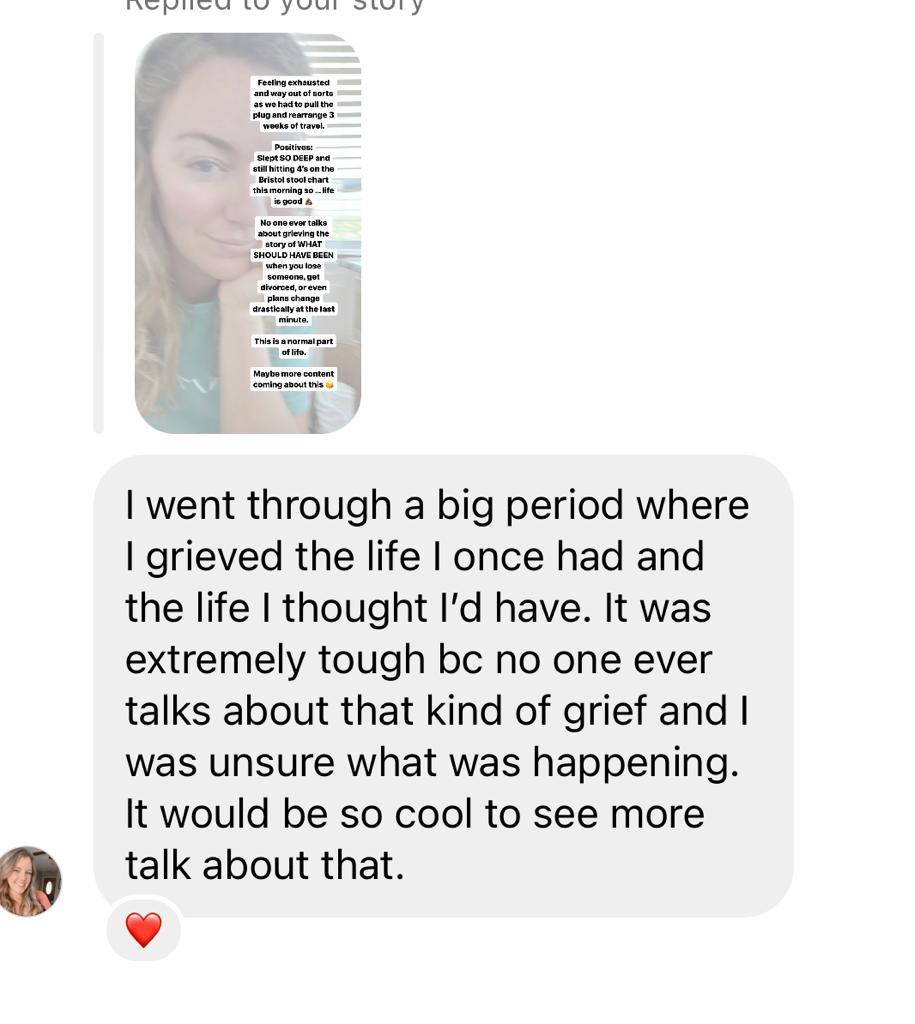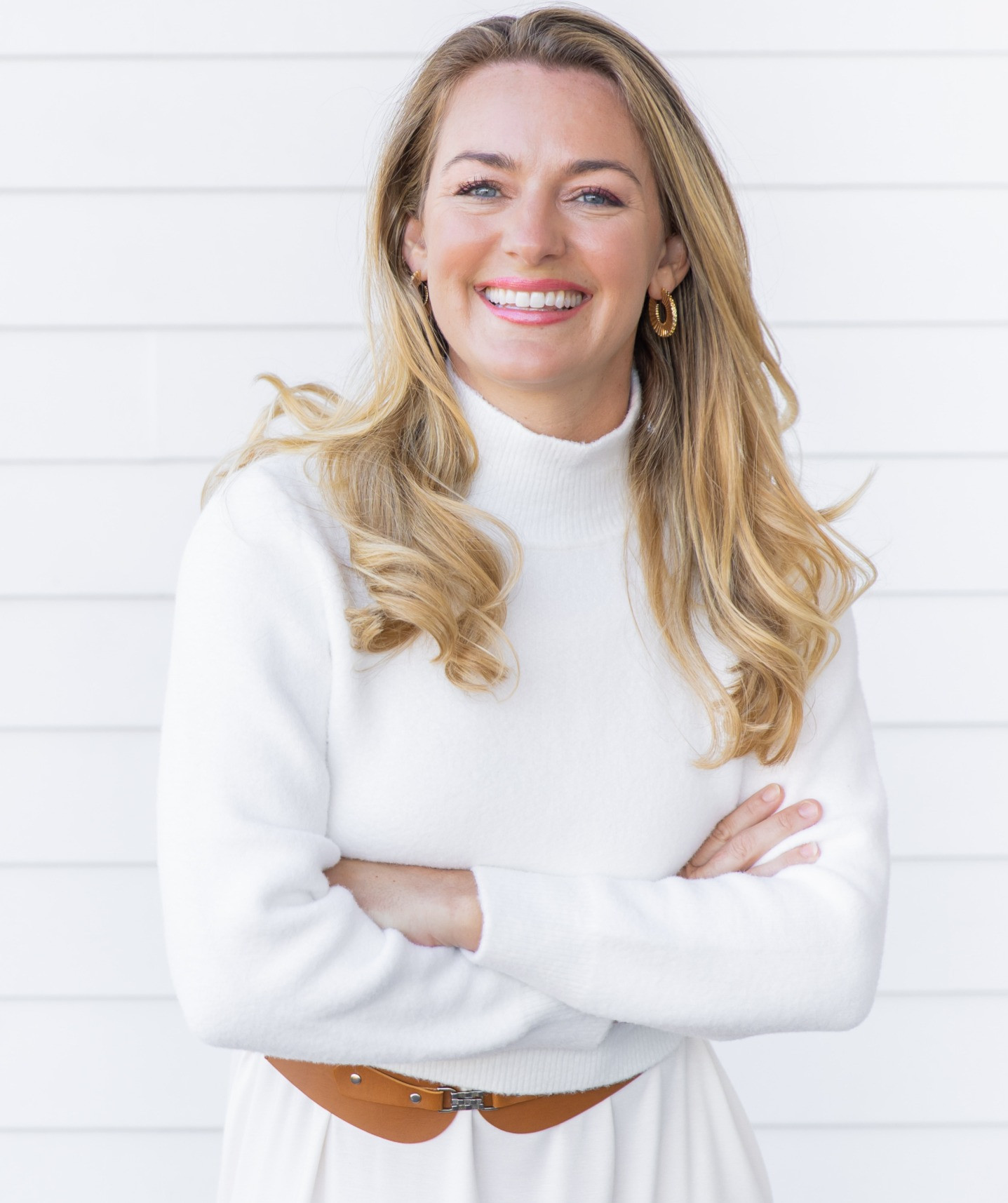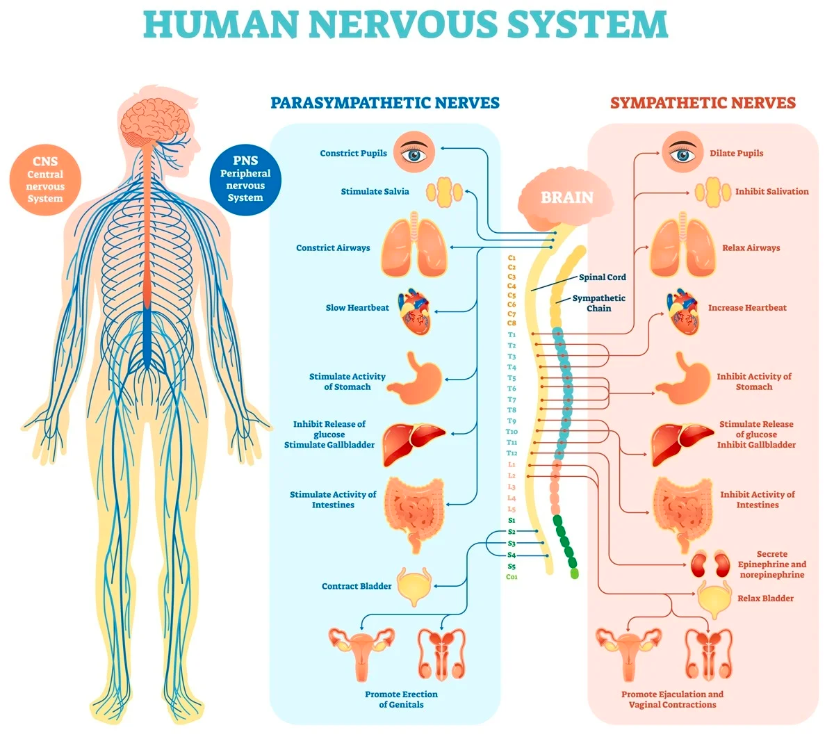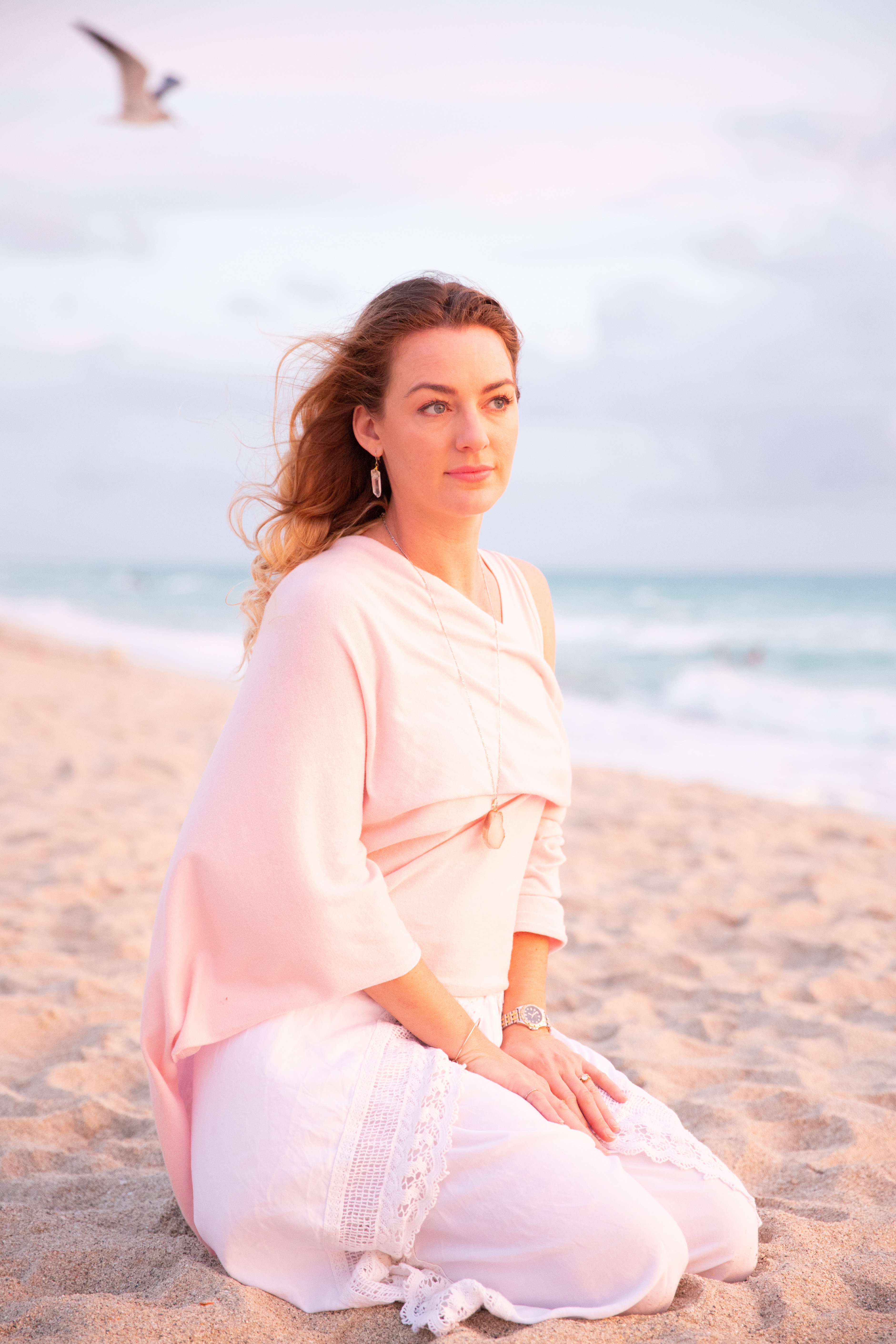Your guide to grieving what could have been.
May 22, 2023

I always aim to be as open, honest, and real as I can on social media platforms in the hope that you feel liberated to do the same. This month’s inspiration came from an Instagram dm. I knew that if she and I had experienced this that there was a high likelihood we weren’t alone. Aside from letting you know you aren’t alone, I wanted to create a sort of ‘guide to grieving what could have been.’ Due to the nature of this tricky topic, I decided to reach out to an expert in loss and grief; Di Atherton. As soon as I connected with her I knew she’d be the right person to guide us through this sticky and uncomfortable (yet necessary) experience.
Grief is not reserved for funerals.
I never want you to feel like you don’t “deserve” to grieve. Grief is a natural response to loss, and while it is often associated with the death of a loved one, that same feeling can arise from unfulfilled expectations and missed opportunities. We are often impatient to move on from this feeling when in reality we’re doing ourselves a disservice by not honoring the death and grieving process. Experiences of grief over what could have been are a valid and incredibly hard period to go through. If you’re wondering what that includes, the list is endless, but some common ones the community mentioned are:
- Loss of a job,
- Ending a relationship,
- Immigrating
- Losing loved ones (including pets),
- Loss of a certain period of your life (College days, living at home, a season of travel),
- Big shifts (kids moving out)
- Missed opportunities.
If you’ve experienced any of those and the low after that – you might have been grieving a loss. The typical response is: “What’s gone is gone.” Usually accompanied by a sense of: “Get on with it“. While this may push you to go back to work and life, it usually results in a lasting and unresolved sense of grief and loss that lives in the body, spirit, nervous system, and in the quiet spaces of your mind. If we want to show up for ourselves, loved ones, work, and purpose, then dealing with this grief is imperative to your happiness and ability to truly “move on”.
The Expert:
I decided instead that this message was a perfect time to reach out to an expert on loss and grief. Di is Certified with Sacred Dying South Africa as a Death Doula and Grief Guide (SDSA Cert.CEOLD). After the death of her husband and soulmate of 38 years, she first experienced just how hard grief could hit. In her recovery, she decided she wanted to use what she learned to support others walking the path of grief. What I love about Di is how she wants to normalize this part of the life cycle. Everything dies (including opportunities and times of our lives).
Yet we run away from the reality of death. It’s swept under the carpet, not talked about, ignored. Until it happens, and we can’t cope for one more second holding that much grief in the body. After her own experiences with grief and working her way to the other side, Di dedicated her life to serving others in this way. She now offers 1-on-1 grief packages and even runs virtual and in-person “Walking the Path of Grief” retreats. She even delves into grief workshops for corporates. With over 25 years of experience in the mind, body, and spirit field, this Reiki Master and personal development specialist is the perfect person to shine a light on this topic.
Why do we struggle with grieving so much?
I couldn’t figure out why grieving was an emotion and experience so many of us struggled with. What Di showed me is that it’s likely because we don’t make time for grief. Compassionate leave is three days. Three days to come to terms with your entire world changing. Compassionate leave is reserved for death, and there are no compassionate leaves nor compassion built into companies and society for all the experiences that so often cause grief. Compare that to maternity leave of 3 months. Di explains that we don’t allow space for the grief process. We are expected to “move on” in a very short span of time. Because the grieving process is so uncomfortable, people also don’t know how to act around someone who is grieving, so they often end up doing or saying inappropriate things or, even worse, avoiding the person altogether.
How can we deal with grieving?
Di creates a non-judgemental, safe space for grievers to talk about what they are experiencing. She witnesses their pain. She includes energy work (Reiki), either hands-on or distant, to support the body which is holding all the unexpressed emotions. She explains that this isn’t just for deaths, but her guidance and support extends to those going through changes in their life and the loss of what could have been.
Some of Di’s tools include journalling, letter writing, and letting go rituals. I know how powerful I’ve found these in my own life, and the best course of action is always to work with professionals who can hold space for you at this time. Through our discussion, I developed a step-by-step grieving guide for you to try in the meantime:
6-Step Grieving Guide:
- Acknowledge and Validate Your Emotions:
- Understand that grieving what could have been is a valid and expected response.
- Allow yourself to feel a range of emotions, including sadness, anger, and frustration.
- Create a safe space to express and process your emotions without judgment.
- Reflect and Accept:
- Reflect on the situation and accept that what could have been is now a part of your past.
- Practice self-compassion and be kind to yourself as you navigate this journey.
- Embrace acceptance as a critical step towards finding peace and moving forward.
- Seek Support:
- Reach out to friends, family, or a support group who can provide empathy and understanding.
- Consider seeking professional help, such as coaching, therapy, or counseling, to guide you through the grieving process.
- Surround yourself with individuals who uplift and support you during this challenging time.
- Redefine Your Perspective:
- Shift your focus from dwelling on what could have been to what opportunities lie ahead.
- Explore new possibilities and consider alternative paths or goals.
- Cultivate a growth mindset and view setbacks as opportunities for personal growth.
- Engage in Self-Care:
- Prioritize self-care practices that nourish your mind, body, and soul.
- Engage in activities that bring you joy, such as exercise, hobbies, or spending time in nature.
- Practice mindfulness and meditation to cultivate inner peace and resilience.
- Celebrate:
- Celebrate each milestone as you move forward. Remember, this isn’t about moving ON. It’s about the ability to move forward.
What to do with the anger:
Allow it to be expressed again by creating that safe, non-judgmental space. This is not something that can be fixed. Di explains we have to “feel to heal.” She creates the container for that to happen. If you cannot go through this with a grief guide or counselor, then this is a space you may need to cultivate for yourself. Often the grieving person really just needs someone to witness their pain and to be there. Not to try and fix it – you can’t fix someone’s grief.
Am I just supposed to accept what happened? Will it ever get better?
Di reminds us that the grief process is as unique as each person, so there is no time frame for the journey. She says acceptance does arrive, but it is impossible to say when. Usually, after a 2-year period, the raw pain begins to ease. “For me, it is four years after John’s passing, and only now do I feel I am beginning to move into the new chapter that I alone must walk. But even in the stage of acceptance, the other stages of grief can return. Grief is like a wave – sometimes, it’s a tsunami that knocks you off your feet; other times, the waves are quiet. It can catch you unawares. A song, a special day, a smell, a sound. It also never leaves you – grief is a journey that never stops. It changes. You learn to adapt your life to allow space for grief.”
Some parting wisdom on grieving
Grief is deeply misunderstood and death is feared in western society. It is sad that, unlike many other cultures who have some beautiful and profound rituals and traditions around death, it is not accepted as a natural part of the cycle of life.
We are not going to live forever. The Tibetan Book of the Dead reminds us to live each day as if it was our last. Some find that morbid. But it is a reminder to make the most of the life we have.
Di Atherton
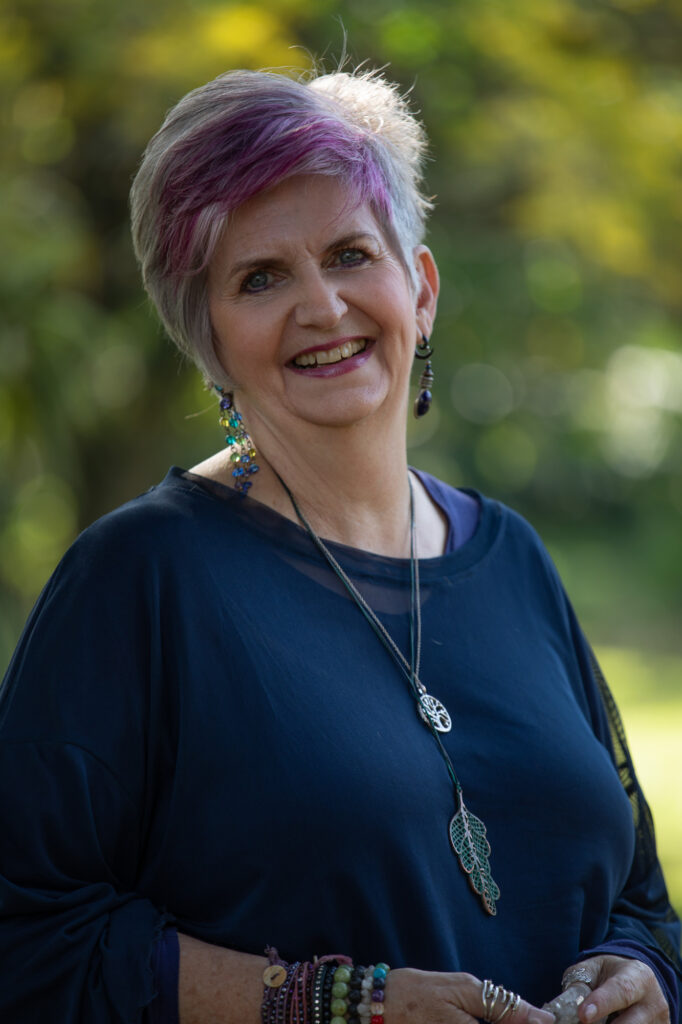
If not a reason, then a purpose.
I wish I could tell you everything happens for a reason, but sometimes unthinkable things happen. What I do know for sure is that humans have a unique ability to find meaning and purpose in the face of adversity. You know what I’m talking about. How many times have you heard of people with incurable diseases or ailments conquering what should be impossible feats? Or becoming world-renowned speakers. Their pain led them to their calling. All of those stories remind us that the strength, possibility, and ability within us is immeasurable.
I can’t tell you that what you’re going through has a meaning, but I can tell you that through taking time to grieve you get to use this time to grow, evolve, and blossom even more into your purpose-driven life.
You’re not alone.
One of my favorite things about working with my team at The Gut Health Agency is realizing how interconnected it all is. Many people’s inability to deal with their grief leads them to burnout. Grief is held in the gut. I love getting to hold space for those going through grief of any kind because through the healing of their grief often comes healing of their gut, body, and life.
Whatever reason you have to grieve is valid and seen here. I hope that this served you in some way.
All my love
Chelsea
xx
Leave a Reply Cancel reply
Featured
Read
Podcast
Have you tuned in?
Chelsea interviews professionals to bring YOU today’s most updated knowledge on nutrition and wellness.
